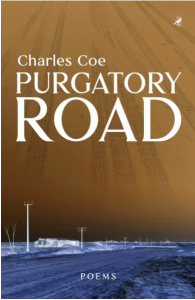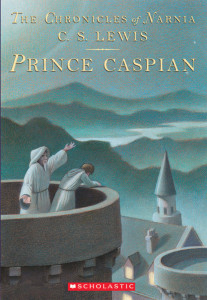
One autumn day when I lived in Massachusetts, we took the children to Purgatory Chasm, a park in Sutton with a playground, nature trails, and the chasm itself. Only some of the adults and older children attempted the difficult path between looming rock walls. There were strange and unworldly formations: deep clefts, overhanging boulders. I found it unsettling.
I remember that feeling whenever I drive past the exit for the chasm, and again when I heard Charles Coe read from his new collection of poems. In the title poem he explores his early understanding of purgatory, summoning with characteristic vibrancy “the dust-covered relics” of his Catholic schooling. As in the best meditative essay, we engage with him as he sorts through these memories and carries them forward into a new understanding of what it means to be us, today, in this damaged world.
Coe’s superpower in these poems is his generous heart. Small things that strike his attention, such as a truck that won’t start in a grocery store parking lot or a woman talking to herself on a traffic island, lead us to understand what it is like to inhabit someone else’s life. Channeling Forster’s call to “only connect,” Coe’s poems from 2020’s lockdown trace what we’ve lost and our attempts to communicate across the void.
In other poems, he invites us to recognise how it feels to be a person of color is our society. He writes feelingly of his father being belittled by a young white drugstore clerk in the 1960s, and what he understands now of the difficult terrain his father had to traverse.
He writes too of his own experiences. He shares with us the everyday things that, unlike the great glacial gush that created Purgatory Chasm, wear away at one. It might be a stink eye from a doorman or an uncurtained window at night. The six-line poem “Things White People Have Said to Me” begins:
You’re so well-spoken.
You don’t seem like you were raised in a ghetto.
In “Blocked” he writes about an encounter in the parking lot. The tone of this poem, as in others, is one I struggle to achieve. Because it is calm, aware, restrained, we reading it are free to feel our own outrage, our own concern about possible consequences, and our own recognition that we are all imperfect beings.
Coe’s sense of humor inflects many of these poems, sometimes wry and subtle, sometimes flat out hilarious, as in “Butt Dialing Jesus” which begins:
There was a time when voices emanating from my pants
would have caused concerns. But now I simply shrugged
and pulled out my phone . . .
It is a joy and a comfort for me to read such poems. Their effect on me is similar to that of Claire Keegan’s Small Things Like These, which reminded me of the goodness in this world and its people. While Coe notes the rocks that litter our path and the walls that rise around us, his generous warmth and humor become welcome companions on this journey.
What poems have you read that were both a comfort and a joy?
